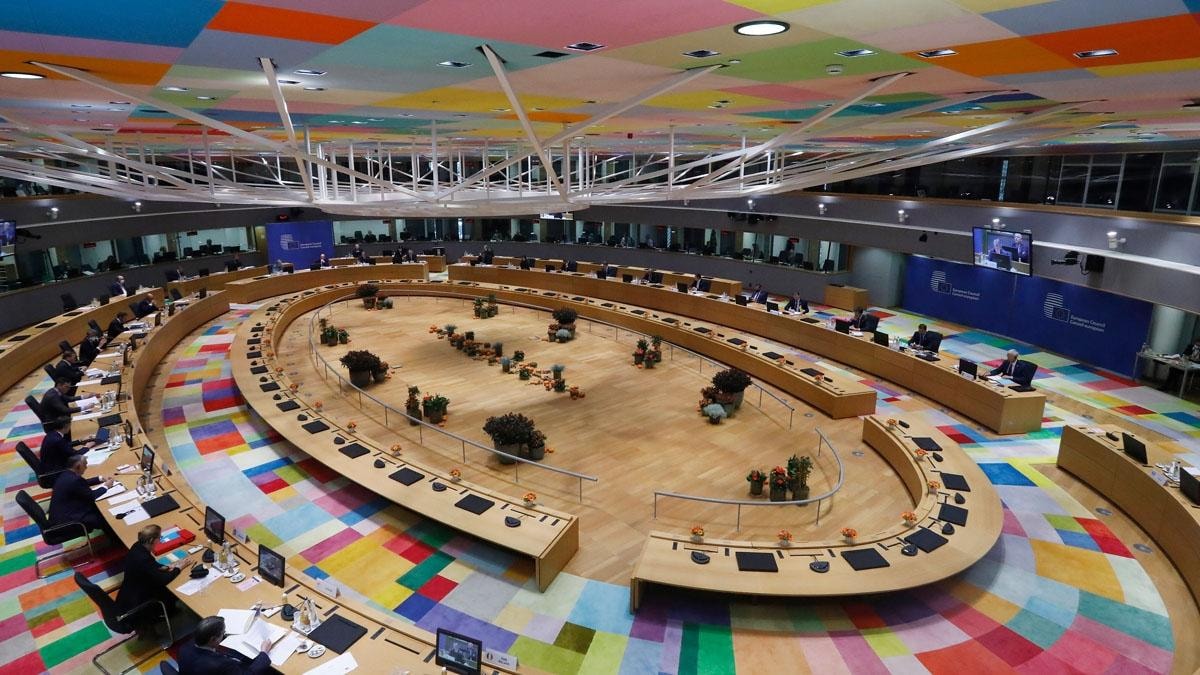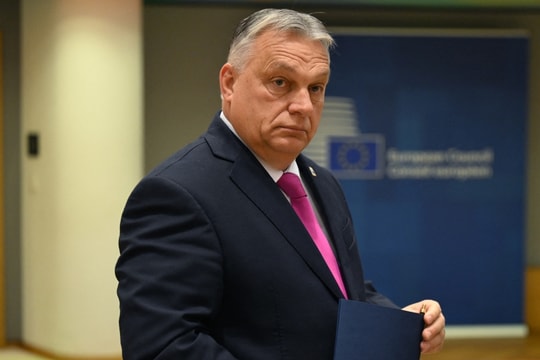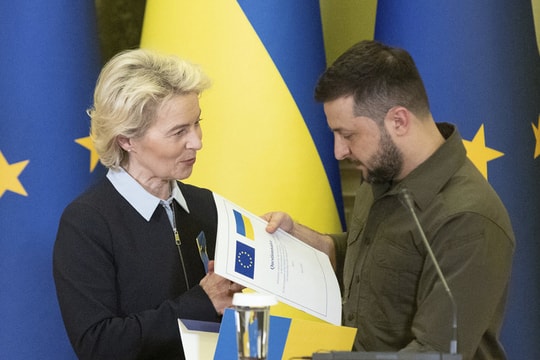EU holds special summit as internal rift begins
During the two-day special summit in Brussels, European leaders will discuss four important topics including: the war in Ukraine, defense policy, energy policy and food security.
 |
| The EU is facing the risk of internal rift. Photo: Consilium EU |
EU holds special summit as internal rift begins over Ukraine war
European Union leaders held a two-day special summit in Brussels on May 30 to discuss the war in Ukraine, energy and defense issues as the bloc's unity around how to respond to the war in Ukraine increasingly shows signs of cracking.
In the invitation letter sent to the heads of 27 European Union member states, President of the European Council, Mr. Charles Michel, announced that during the two-day special Summit in Brussels, European leaders will discuss four important topics including: the war in Ukraine, defense policy, energy policy and food security.
Among these, the developments of the war in Ukraine as well as Europe's policies towards Russia and Ukraine will be the central issues, taking up most of the discussion time, especially the sixth package of sanctions that the European Union plans to impose on Russia.
Currently, after nearly a month of preparation and discussion, EU countries have not yet been able to reach a consensus on the strongest measure of this sanctions package, which is a complete embargo on Russian oil. In the latest revised draft on May 27, the European Commission proposed a scenario that would continue to allow countries to import Russian oil through pipelines but ban imports by sea.
This is a proposal put forward by France to overcome the objections of Hungary, a landlocked EU country that depends on 65% of its oil imports from Russia via the Druzhba pipeline. However, if the EU passes this draft, some other countries may object because they believe Hungary is treated more favorably.
Speaking at the Hannover Fair on May 29, German Economy Minister Robert Habeck assessed that the solidarity that the European Union showed in the early stages when the war in Ukraine first broke out is starting to falter.
Last week, European Council President Charles Michel also admitted that maintaining solidarity among European countries is not easy.
“We are trying to work creatively and constructively to come up with some drafts and proposals to defend European unity. It is not easy, it is very difficult, but we are not giving up. We have discussed a lot and I really hope that we will be able to show that unity again. This extraordinary summit on 30-31 May will be a very important moment to show that,” said the President of the European Council.
In addition to agreeing on the Russian oil embargo, at the special summit, European leaders will also have to discuss efforts to support Ukraine financially, militarily and humanitarian. Next, EU countries will also have to discuss new defense policy priorities, increase investment in defense equipment, and narrow the gap in military spending between member countries.
On energy, European leaders will discuss the “RePowerEU” plan, which aims to reduce the EU’s dependence on Russian oil, gas and coal supplies.
Finally, the issue of food security will also be mentioned, in the context of the war in Ukraine leading to a shortage of wheat, fertilizer, seeds and is threatening to push some regions of the world such as North Africa and the Middle East into famine. Europe is concerned that if famine occurs in North Africa, Europe may have to face new waves of refugees./.



